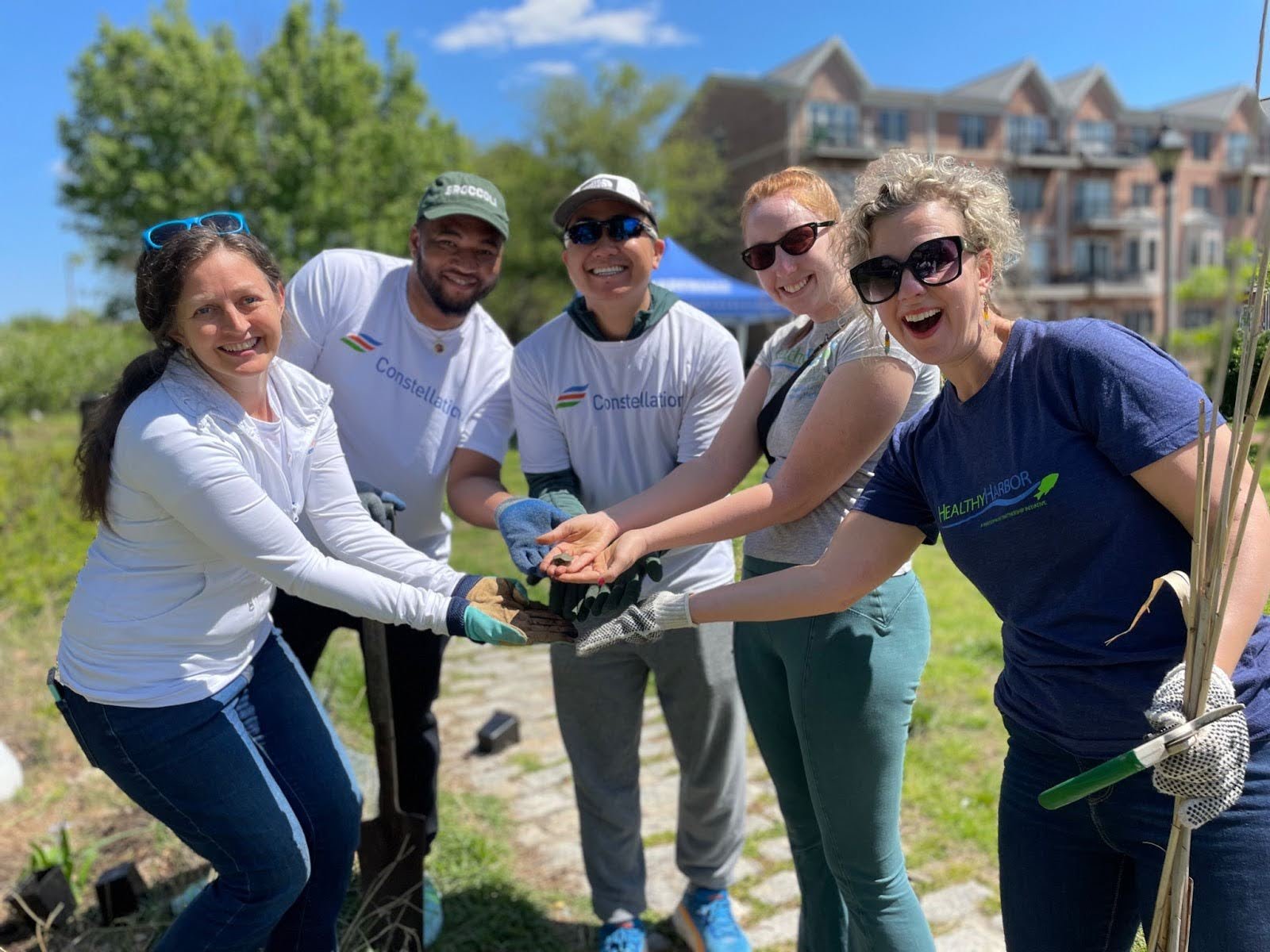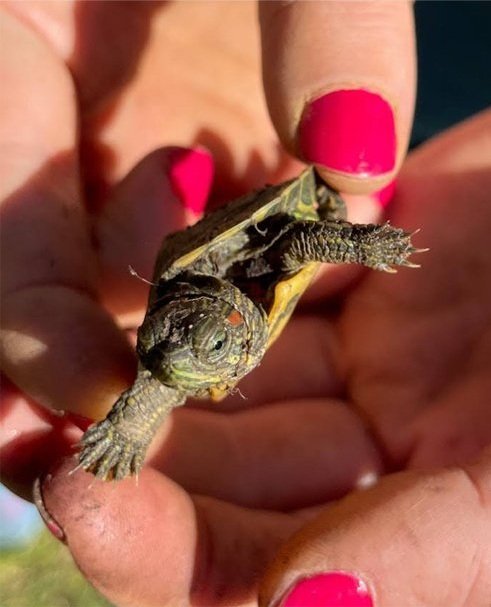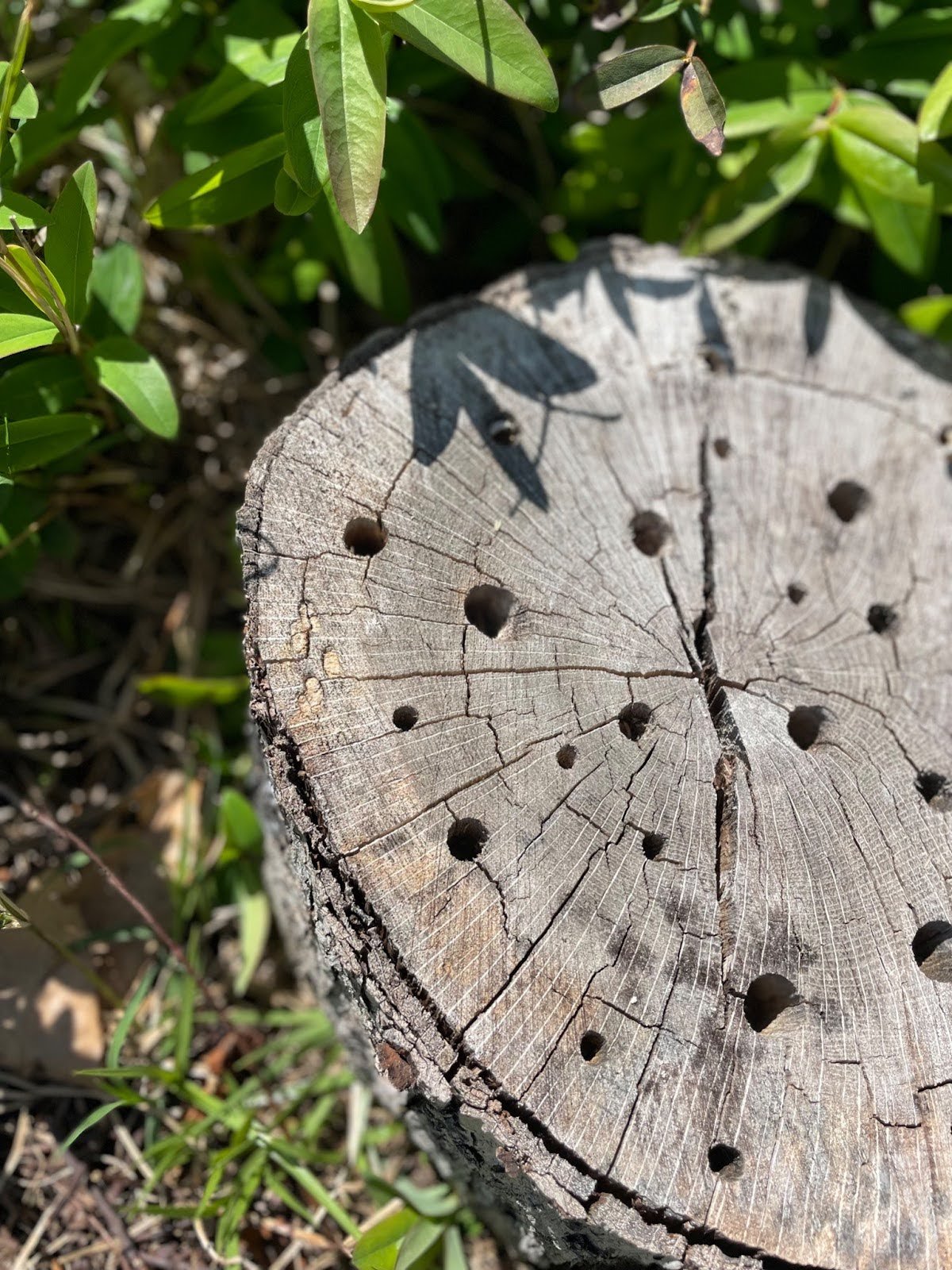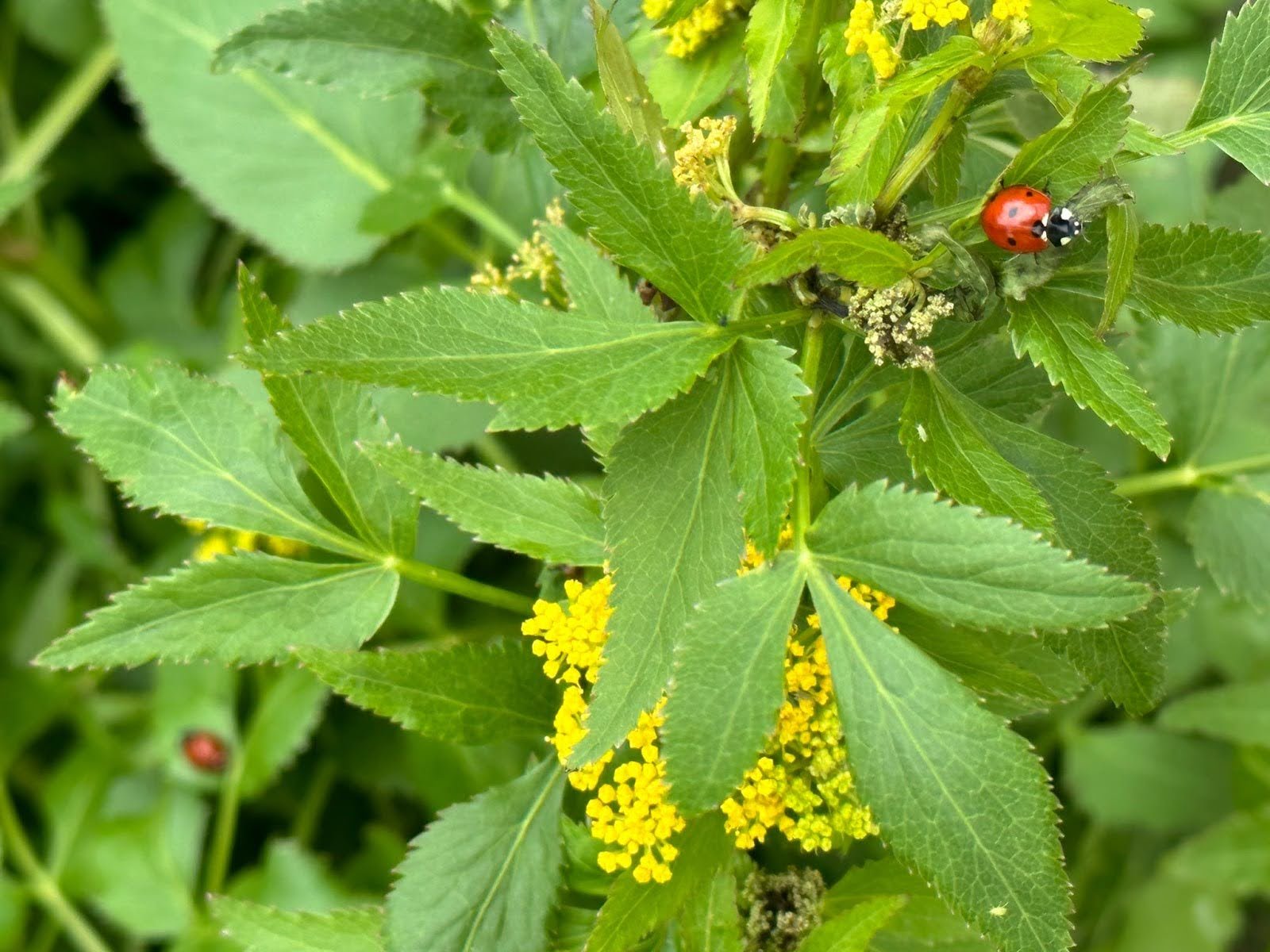Earth Week on the Waterfront: Wildlife Gardening at the Harbor
Waterfront Partnership led two groups of volunteers from BGE and Constellation for Earth Week, exploring urban ecology, habitat features, and ways to fight climate change through Wildlife Gardening!
Two mighty groups of volunteers from Constellation Energy and BGE got a chance to get their hands dirty as they worked to help maintain two native pollinator gardens at the Waterfront. Constellation Energy has been a long-time steward of Professor Trash Wheel’s rain garden at Harris Creek Park in the Canton community. Dozens of volunteers worked to refresh this five-year-old garden, filled with hundreds of native plants that help capture and filter polluted stormwater runoff.
For Earth Day, we spruced up by adding more
Iris, Echinacea, and Heucher plants, lopped down spent debris, and removed invasive plants. Constellation installed our first waterfront Bug Snug! A Bug Snug is just as cozy as it sounds for hibernating insects and invertebrates. It intentionally leaves a bit of untidiness for wildlife as stacks of twigs create a teepee shape until the insects are fully sprung for spring.
Tucked among the leaves in the basin of the garden we discovered a baby Red-eared slider turtle! We were thrilled to see evidence of our bee hotels in use by one of the 400 species of native bees because the drilled holes in our wood cookies (slices of wood) were filled with mud.
Left - Constellation volunteer Bug Snug
Below, left to right
Constellation volunteers with baby red slider turtle,
Baby Red Slider Turtle,
Bee Hotel/wood cookie holes
As the seven-mile Waterfront Promenade twists
and turns into Harbor East,
you will find the spectacular two-block-long Lancaster Canal Butterfly Waystation - just past the Turtle Islands. Over a dozen BGE volunteers helped maintain this pollinator garden filled with thousands of native plants in their third year of growing. Phlox divaricata, or creeping phlox, is a standout perennial for Earth Week, with bright fuchsia flowers that creep like a carpet and leaves that stay evergreen. Another fascinating early bloomer you’ll see planted from Lancaster to Rash Field is Zizia aurea, or Golden Alexander. Golden Alexander is on the MD state watch list as a species occurring in critically low numbers and is an important host plant to a number of species including the Black swallowtail butterfly and lady beetles.
Right - BGE volunteers sheet mulch with WPB
Below, Left to Right
Constellation volunteers weeding
Constellation builds the snug!
Golden Alexander welcomes the Lady Bird Beetles.
BGE volunteers learned about these important native host plants, what they can plant at home to help increase biodiversity, and how to sheet mulch! Sheet mulching is a no-dig method of installing a new garden bed by adding layers of cardboard and mulch on top, planting directly into the mulch.
From native plants to insect hotels the Waterfront has more than 10 acres of green space that provides hands-on learning opportunities for our corporate stakeholders and the public. We are grateful to BGE and Constellation for your continued support and for keeping our gardens growing gorgeous!








